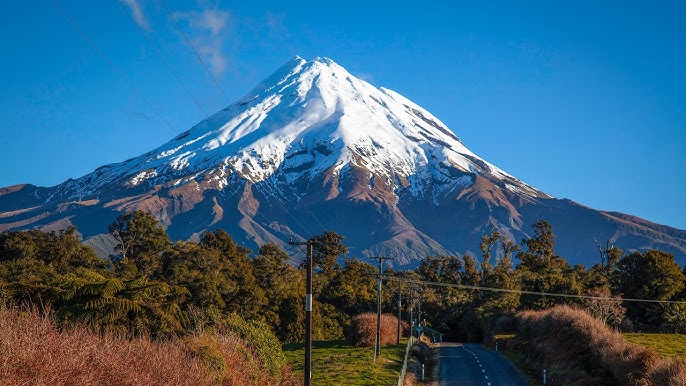In a historic move, New Zealand's Mount Taranaki, also known as Taranaki Maunga, has been granted personhood status, giving it the same rights and responsibilities as a human being.
As of January 30, the volcano is no longer owned by the government, and its British colonial name, Mount Egmont, is a thing of the past.
What Does This Mean for the Maori People?
For the Maori, Mount Taranaki is not just a mountain - it's an ancestor. The tribe considers it a sacred part of their heritage, and they'll be working closely with government officials to care for it.

This change in ownership and personhood status is a significant step towards reconciliation, acknowledging the historical injustices and land confiscations faced by the Maori people.
A Victory for the Maori Community
The Taranaki Maunga Collective Redress Bill, signed into law on January 30, marks a major victory for the Maori community.
Debbie Ngarewa-Packer, co-leader of the Te Pāti Māori party, expressed her joy, saying, "Today, Taranaki, our maunga, our maunga tupuna, is released from the shackles - the shackles of injustice, of ignorance, of hate."
Hundreds of Maori gathered outside the parliament to celebrate this milestone.
A Growing Trend: Giving Nature Human Rights
New Zealand has been at the forefront of recognizing natural entities as legal persons. In 2014, the country granted personhood status to the Te Urewea sacred forest, and in 2017, the Whanganui river followed suit.
This trend is not limited to New Zealand, as other countries are also giving natural elements human rights to combat climate change.
For example, Orange County in Florida, USA, adopted a Rights of Nature law in 2020, giving bodies of water the right to exist, flow, and be protected from pollution.
Why This Matters
Granting personhood status to natural entities like Mount Taranaki is a crucial step towards protecting our environment and preserving indigenous cultures.
As Chuck O'Neal, chairman of the Florida Rights of Nature Network, said, "Our waters also have new legal rights: to exist, flow, be protected against pollution, and to maintain healthy ecosystems."
This shift in perspective could herald a new era in environmental conservation and reconciliation.



